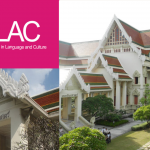The Rise of the Macau Gaming Industry: A Review of Its History and Growth
The Rise of the Macau Gaming Industry: A Review of Its History and Growth
Macau, a small territory on the southern coast of China, has become a major player in the global gaming industry over the past few decades. Once a Portuguese colony, Macau’s economy was primarily driven by textiles and fishing until the 1960s. However, with the decline of these industries, the government began to diversify the economy and explore new revenue streams.
Early Days of Gaming in Macau
Gaming has been https://dreamsofmacau.top present in Macau for centuries, dating back to the 1840s when the first casinos were established by Chinese immigrants. These early casinos catered primarily to local residents and provided a platform for socializing and entertainment. However, it wasn’t until the 1980s that gaming began to gain traction as a significant contributor to Macau’s economy.
In 1989, the Portuguese government decided to liberalize the gaming industry by issuing licenses to private companies. This move marked a significant turning point in Macau’s history, as it paved the way for the development of large-scale casinos and gaming infrastructure. The first modern casino, the Casino Lisboa, was opened in 1970 but it wasn’t until the late 1990s that the industry began to flourish.
The Impact of the Sino-Portuguese Joint Declaration
In 1999, Macau returned to China as a Special Administrative Region (SAR), marking the end of Portuguese rule. The Sino-Portuguese Joint Declaration provided for the continuation of Macau’s capitalist economy and its "one country, two systems" arrangement with Hong Kong. This allowed Macau to maintain a high degree of autonomy in economic matters, including gaming.
The Joint Declaration also facilitated the development of large-scale casinos and gaming infrastructure. The government granted licenses to private companies, such as Sociedade de Jogos de Macau (SJM) and STDM, which invested heavily in casino construction and marketing. This period saw the emergence of iconic casinos like the Lisboa and the Galaxy, which became beacons for tourism and revenue growth.
The Golden Age of Gaming: 2002-2014
The early 2000s marked a golden age for Macau’s gaming industry. The territory experienced unprecedented growth, driven by a surge in visitors from mainland China. This was largely due to the relaxation of travel restrictions between Macau and China, as well as the introduction of new casino concepts like VIP rooms.
During this period, the number of visitors to Macau skyrocketed, reaching over 27 million in 2013. Gaming revenue rose accordingly, with total takings exceeding $45 billion for the first time in 2007. The industry’s growth was further fueled by the introduction of new casinos, including the Venetian and City of Dreams, which offered a range of gaming options and entertainment facilities.
Challenges and Controversies
While Macau’s gaming industry has been incredibly successful, it has not been without its challenges and controversies. One major issue is the high level of VIP junket operators, who often exploit high-rollers with credit facilities that can lead to debt problems for players. This has raised concerns about money laundering and social responsibility.
Another challenge facing the industry is the impact of the global financial crisis in 2008. Gaming revenue declined significantly during this period, prompting the government to introduce measures to boost tourism and stimulate economic growth. The authorities also implemented stricter regulations on junket operators and introduced new licensing requirements for casinos.
The Impact of China’s Economic Slowdown
In recent years, Macau’s gaming industry has faced significant headwinds due to a decline in visitor numbers from mainland China. This has been attributed to the country’s economic slowdown, which has reduced disposable income and cut back on luxury spending.
However, the government has taken steps to diversify the economy and reduce its reliance on gaming revenue. These measures include investing in infrastructure development, promoting tourism through events like the Macau Grand Prix, and encouraging innovation and entrepreneurship.
The Future of Gaming in Macau
Despite the challenges faced by the industry, Macau’s gaming sector remains a significant contributor to the territory’s economy. The government has identified several areas for growth, including the development of new casinos, expansion of existing properties, and increased investment in technology and innovation.
One promising trend is the rise of mass market gaming, which offers more affordable and accessible options for local residents and tourists. This shift towards a broader customer base has seen an increase in gaming revenue from non-VIP players, who now account for over 50% of total takings.
Conclusion
Macau’s gaming industry has come a long way since its early days as a small-scale operation catering to local residents. Over the years, it has evolved into a global hub for casino entertainment and gaming innovation. While challenges remain, the territory is well-positioned to continue growing and adapting in response to changing market conditions.
As the industry continues to evolve, Macau remains committed to its reputation for luxury, sophistication, and customer satisfaction. With its unique blend of culture, history, and entertainment options, the territory is poised to maintain its position as a leader in the global gaming industry.




About the author